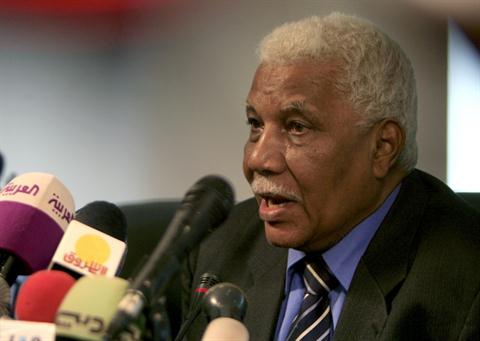Thursday 25 October 2012 - 17:13
Story Code : 8729
Sudan-Iran links under scrutiny after army factory blast
KHARTOUM: Sudan's links to Iran came under scrutiny on Thursday after Khartoum accused Israel of a deadly missile strike on a military factory in the heart of the Sudanese capital.
The cabinet met in urgent session late Wednesday after the government said evidence pointed to Israeli involvement in the alleged attack at around midnight Tuesday on the Yarmouk military manufacturing facility in southern Khartoum.
Sudan accused the Jewish state of a similar raid 18 months ago.
Israeli officials have expressed concern about arms smuggling through Sudan and have long accused Khartoum of serving as a base of support for militants from the Islamist Hamas movement.
Israel refused all comment on the Khartoum allegations, but Amos Gilad, a top Israeli defence official, called Sudan "a dangerous terrorist state."
Gilad, director of policy and political-military affairs at the defence ministry, refused to reply directly when asked whether Israel was involved in the attack, which Sudan said was conducted by four radar-evading aircraft.
"The regime is supported by Iran and it serves as a route for the transfer, via Egyptian territory, of Iranian weapons to Hamas and Islamic Jihad terrorists," he told his country's army radio on Thursday.
"Sudanese President Omar al-Bashir is regarded a war criminal."
Bashir is wanted by the International Criminal Court for alleged crimes against humanity, war crimes and genocide in his country's far-west Darfur region where a rebellion began in 2003.
The cabinet in Khartoum issued no statement after its late Wednesday meeting, where Bashir joined anti-Israel protesters in chanting "Allahu akbar" ("God is greater").
About 300 demonstrators denounced the United States and carried banners calling for Israel to be wiped off the earth.
"There was supposed to be an agreement between Sudan and Iran to produce some kind of non-conventional weapons," a diplomatic source told AFP on Thursday.
The source, asking not to be identified, said he was also told that the Yarmouk factory was involved in drone production.
Information Minister Ahmed Bilal Osman told reporters on Wednesday that the factory made "traditional weapons".
"We think Israel did the bombing," which killed two people, he said. "We reserve the right to react at a place and time we choose."
Residents living near the factory told AFP an aircraft or missile had flown overhead shortly before the plant and surrounding area exploded in flames, sending bursts of white light into the night sky.
Sudan called on the UN Security Council to condemn Israel for what its envoy, Daffa-Alla Elhag Ali Osman, called "a blatant violation of the concept of peace and security" and the UN charter.
He also accused Israel of arming rebels and helping to transport rebel leaders in Sudan's Darfur states, and said Israel was "jeopardising peace and security in the entire region."
In 1998, Human Rights Watch said a coalition of opposition groups had alleged that Sudan stored chemical weapons for Iraq at the Yarmouk facility. Government officials strenuously denied the charge at the time.
On Wednesday, before officials accused Israel, the governor of Khartoum state Abdul Rahman Al-Khider told official media that preliminary investigation found that an explosion happened in a store room.
He dismissed speculation that "other reasons" caused the incident.
The diplomatic source said "the human factor" -- a possible accidental cause -- should not be ruled out although Sudanese officials are taking allegations of Israeli involvement seriously.
"In the government, and the authorities, it's a widespread opinion," the source said.
In April last year, Sudan said it had irrefutable evidence that Israeli attack helicopters carried out a strike on a car south of Port Sudan.
That incident mirrored a similar attack by foreign aircraft on a truck convoy reportedly laden with weapons in eastern Sudan in January 2009.
The Iran Project is not responsible for the content of quoted articles.
# Tags











